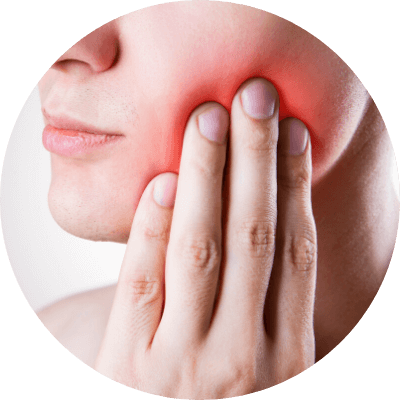Curcumin And Periodontal Disease: The Nanoparticle Party
Curcumin And Periodontal Disease: The Nanoparticle Party

It is no fun and no party to be suffering from gum disease in its various stages. But curcumin and its “nanoparticle party” may be able to come to the aid of periodontal disease sufferers. For those who don’t know, curcumin is derived from the turmeric plant.
“Curcumin, a principal bioactive substance of turmeric (Curcuma longa L.), is reported as a strong antioxidant, anti-inflammatory, antibacterial, antifungal, and antiviral agent.”
– The National Library of Medicine
Curcumin Comes From Turmeric
Bright yellow powder on the spice rack is, perhaps, what many would be most familiar with. A common ingredient in Indian curries and yoghurt based drinks. Turmeric root is a rhizome like ginger and can be used fresh in cooking and salads for extra tang and spice.
According to the wisdom of Indian chefs and ayurvedic healers it is best consumed with a fat, like oil, ghee, or yoghurt, for the body to absorb the anti-inflammatory properties of curcumin.
Curcumin’s anti-microbial properties are, also, of great value in the treatment of gingivitis and gum disease. There have been a host of scientific studies into the efficacy of curcumin as a natural treatment for a variety of health conditions. In this article, we will be focusing on its effectiveness in treating periodontal disease.
“Curcumin has been used as an adjunct to non-surgical periodontal treatment. However, the efficacy of curcumin in the periodontal therapy remained controversial. This study aimed to evaluate the anti-inflammatory efficacy of curcumin as an adjunct to non-surgical periodontal treatment (NPT) by systematic review…. the results of this systematic review and meta-analysis show that curcumin demonstrates anti-inflammatory efficacies in terms of reducing GI and SBI compared with NPT alone. Moreover, curcumin is a natural herbal medicine with few side effects, and it is a good candidate as an adjunct treatment for periodontal disease.”
– Lucia Recinella in Frontiers
What Is Periodontal Disease?
Periodontal disease is a chronic inflammatory condition affecting the gums and tissues of support of the teeth. Serious manifestations of periodontal disease may lead to the destruction of alveolar bone and periodontal ligament. It is estimated that some 20% of the population may suffer from the more serious forms of this condition. In addition, the less severe cases of gum disease affect between 35% to 60% of the population. (Zambrono, 2018) Periodontal disease involves a complex microbial film, the pathogenesis of the condition, which is a result of a dysbiotic process emanating from an imbalance between microorganisms and the host responses. Bacterial infections are the cause of gum disease.
How Do Dentists Treat Periodontal Disease?
Current treatments for periodontal disease include scaling and root planning in the early stages of gingivitis. The removal of deposits of plaque and calculus from below the gum area is important to control the spread and worsening of the disease. Following scaling and root planning dentists may apply topical antibiotics to the teeth, gums, and blow the gumline. These gels, chips, strips or mini capsules may contain minocycline, doxycycline, tetracycline, or metronidazole.
Other treatments for more serious manifestations of periodontal disease include Pocket Depth Reduction. This surgical approach removes the spaces where pockets of infection occur around teeth. Bone grafting can be employed once the bacteria has been eliminated to assist the body in regrowing bone tissue. Root coverage takes gum tissue from another unaffected part of your mouth to cover exposed root surfaces.
Reported side effects from conventional drug therapies for dental diseases are prevalent, according to the scientific literature. In response to this there has been concerted interest in natural treatments derived from plants based compounds like curcumin. Turmeric has long been associated with healing in traditional medicine systems like Ayurveda.

Curcumin: A Natural Treatment For Gum Disease
“Its greatest anti-inflammatory properties are due to its ability to inhibit nuclear factor-kappa B and specifically in its downregulation of the proinflammatory enzyme cyclooxygenase-2 (cox-2). Reduction in cox-2 results in reducing inflammatory mediators generated via the arachidonic acid pathway, which is why curcumin’s selective inhibition of prostaglandins gives it a substantial advantage over aspirin. Antimicrobial properties of curcumin are likely due to its ability to inhibit bacterial lipopolysaccharide‒induced cytokine expression and bacterial quorum sensing systems.”
– Natural Medicine Journal
“Topical application Applying a paste made from 1 tsp of turmeric with ½ tsp of salt and ½ tsp of mustard oil provides relief from gingivitis and periodontitis. It is recommended to rub the teeth and gums with this paste twice daily.”
You can create your own turmeric mouthwash with the spice in its powdered form. Boiling up a teaspoon of turmeric in a cup of hot water, mixing well, and then cooling right down, prior to using it as a mouth wash for your gums can help with early stage gum disease. A paste can be prepared in similar fashion but with the addition of coconut oil to assist in viscosity. There are a number of exact recipes available on the internet for a variety turmeric based preparations.
The scientific evidence for the efficacy of curcumin in the treatment of periodontal disease is growing, as seen by the quoted excerpts from studies and reviews included in this article. The anti-inflammatory properties of curcumin aid in the reduction of swelling around infected gums. The antimicrobial properties within curcumin can help reduce the bacterial infection causing gum disease. Any treatment plans utilising curcumin for periodontal disease should be approached in consultation with your dentist and/or medical professional.
Colgate Palmolive in America is currently about to begin testing a toothpaste containing curcumin on halitosis or bad breath. Remember that bacteria and biofilm are the main cause of halitosis. https://clinicaltrials.gov/ct2/show/NCT04998617
There is a range of toothpastes on the market containing turmeric.
Gum disease is a serious and substantial problem around the world. Its major cause is the neglect of dental hygiene. The importance of proper brushing of teeth, at least twice a day in the morning and night, flossing for best results, and the use of a mouth wash is illustrated by the high rate of periodontal disease. Regular check-ups with your dentist can catch it before it becomes a serious problem, threatening teeth and overall health.
References:
Zambrano, Laura & Brandao, Dayane & Rocha, F.R.G. & Marsiglio, Raquel & Longo, Ieda & Primo, Fernando & Tedesco, Antonio & Guimarães, Morgana & Rossa Junior, Carlos. (2018). Local administration of curcumin-loaded nanoparticles effectively inhibits inflammation and bone resorption associated with experimental periodontal disease. Scientific Reports. 8. 10.1038/s41598-018-24866-2.
DISCLAIMER:
The content has been made available for informational and educational purposes only. New Gisborne Dental House does not make any representation or warranties with respect to the accuracy, applicability, fitness, or completeness of the content.
The content is not intended to be a substitute for professional personal diagnosis or treatment. Always seek the advice of your dentist or another qualified health provider with any questions you may have regarding a dental or medical condition. Never disregard professional advice or delay seeking it because of something you have read or seen on the Site.












